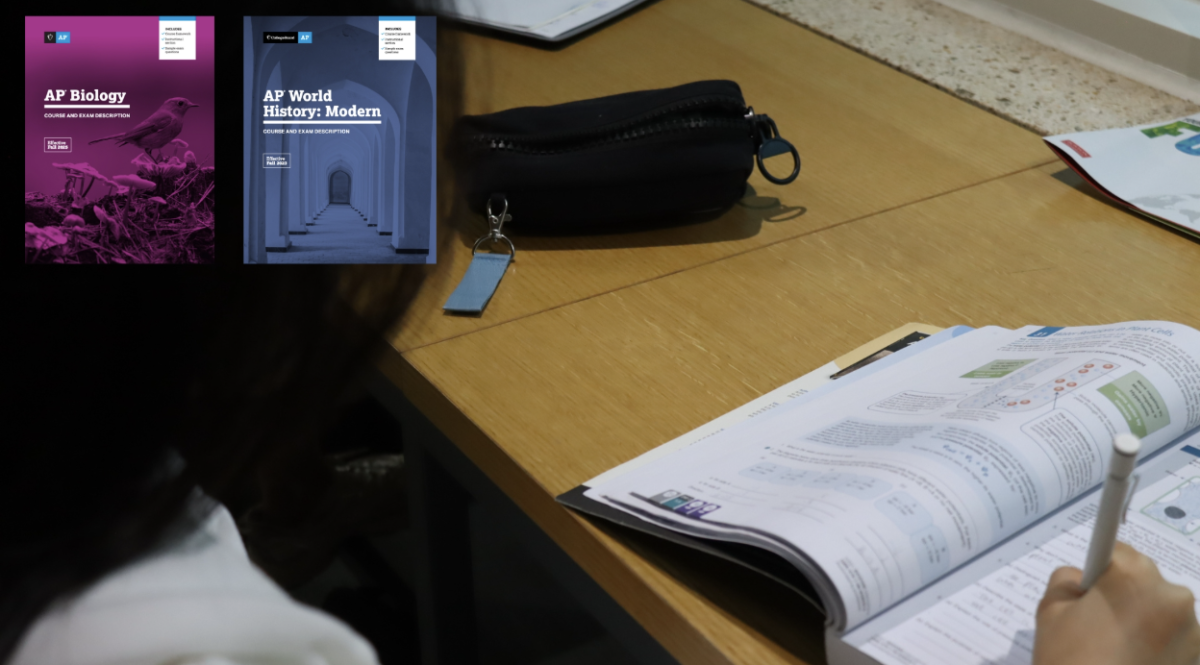The sophomore grade had its first experience with AP unit tests, with AP Biology students having their first summative from Sept. 1-2. AP Biology, alongside AP World History, is one of the two AP choices available to the current sophomores.
The unit test covered topics of the first unit such as biochemistry, macromolecules, monomers, and the effects of functional groups of the larger molecules. For many, the test was an introduction to the rigorous AP cycle and what they could expect as the year progressed.
“I find the new concepts and homework to be challenging because there is just so much,” Roy Lee (10), AP Biology student, said. “The tests also require more than just background knowledge, and you actually need to apply them, and that is really tough.”
AP Biology is recognized as a challenging subject that covers college-level biology and allows students to earn college credits based on their performance on the final AP test. This system naturally makes it a challenging course that involves heavy concepts not covered in the standard high school curriculum. When compared with the Biology & Ecology class that was mandatory last year, the then freshmen, now sophomores, described the difference as “significant” and “substantial.”
“I think because for most students, it is their first AP, and they are not familiar with the AP style questions.” Niko Lambert, AP Biology teacher, said. “They are not as recall-based and more application-based, and that is something that a lot of students struggle with.”
Many students studied for hours for the test, solving nearly 100 practice problems on AP Classroom and Albert.io to fully prepare. The exam still proved to be difficult, due to its MCQ and FRQ format that forced students not only to memorize concepts, but also to apply them to complex and multi-level situations. This is a notable step up from a regular biology class taken in freshman year, where tests mainly focused on definitions of scientific vocabulary and demonstrating understanding of concepts.
For students of AP Biology, the test was a wake-up call to the hardships of AP. For sophomores taking AP World History, their test has yet to come. Instead, students had two assignments: a short quiz and a project covering a historical figure that had a summative grade. Most students said that the workload and difficulty were light and that they finished without much difficulty.
The AP World History unit test does not have a set date as of now. The first unit, “The Global Tapestry,” started late into the semester, so students are not expecting a full unit test for the foreseeable future.
“There is a lot of pressure to get a five on the final AP test,” Paul Park (10), AP World History student, said. “Because of this, it makes even relatively easy sessions difficult. We have to make sure to understand and absorb all of the material, and it takes some time to do that.”
The students of AP World History have yet to take their test, but the pressure of being in an AP course is still the same. Many feel that as the year goes on, the difficulty and quantity of information they will have to thoroughly memorize, understand, and apply will increase. Similar to AP Biology, AP World History covers broad topics and requires students to be familiar with both ancient and modern history as well as the many links that exist between them. This naturally means that information is abundant, and this is often considered the main challenge for AP World History.
The AP courses will continue to be an academic challenge for participating students, especially sophomores whose first experience with AP is expected to be one filled with intellectual opportunities, setbacks, and gains.


